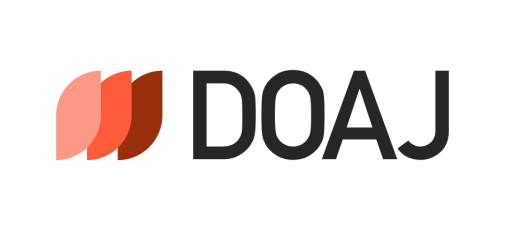Bentuk-Bentuk Reinforcement dan Punishment untuk Pembentukan Perilaku Siswa di Kabupaten Malang
Abstract
Pemberian reinforcement dan punishment dalam bidang pendidikan sudah menjadi hal yang lazim dilakukan oleh guru maupun konselor sekolah. Kedua hal tersebut berguna untuk pembentukan perilaku siswa atau untuk mengatasi perilaku malasuai yang dilakukan oleh siswa. Tujuan kegiatan pelatihan ini untuk mengetahui bentuk reinforcement dan punishment yang diberikan oleh guru BK di Kabupatern Malang. Kegiatan pelatihan dilaksanakan pada guru-guru SMP yang tergabung dalam MGBK Kabupaten Malang. Keberhasilan pelatihan ini ditunjukkan dengan kemampuan guru dalam menjelaskan bentuk reinforcement dan punishment yang diberikan pada siswa. Hasil pelatihan menunjukkan bahwa guru atau konselor sekolah menggunakan bentuk reinforcer yaitu sosial, aktivitas, dan token, sedangkan punishment yang diberikan masih berkaitan dengan kegiatan akademik siswa di sekolah.
Full Text:
PDFReferences
Adibsereshki, N., Abkenar, S. J., Ashoori, M., & Mirzamani, M. (2015). The effectiveness of using reinforcements in the classroom on the academic achievement of students with intellectual disabilities. Journal of Intellectual Disabilities, 19(1), 83-93.
Aini, H., Suandi, N., & Nurjaya, G. (2019). Pemberian Penguatan (Reinforcement) Verbal dan Nonverbal Guru dalam Pembelajaran Bahasa Indonesia di Kelas VIII MTSN Seririt. Jurnal Pendidikan Bahasa dan Sastra Indonesia Undiksha, 8(1).
Arigbo, P. O. & Adeogun, T. F. (2018). Effect of Punishment on Students Academic Performance: An Empirical Study of Secondary School Students in Ikwuano, Abia State, Nigeria. International Journal of Applied Research and Technology, 7(10): 52 – 58.
Asadullah, A. B. M., Juhdi, N. B., Islam, M. N., Ahmed, A. A. A., & Abdullah, A. B. M. (2019). The effect of reinforcement and punishment on employee performance. ABC Journal of Advanced Research, 8(2), 47-58.
Aziz, N. A. A., & Yasin, M. H. M. (2018). Token economy to improve concentration among students with learning disabilities in primary school. Journal of ICSAR, 2(1), 32-36.
Chen, X. (2020). Exploring cultural meanings of adaptive and maladaptive behaviors in children and adolescents: A contextual-developmental perspective. International Journal of Behavioral Development, 44(3), 256-265.
Febianti, Y. N. (2018). Peningkatan Motivasi Belajar Dengan Pemberian Reward And Punishment Yang Positif. Edunomic: Jurnal Ilmiah Pendidikan Ekonomi Fakultas Keguruan dan Ilmu Pendidikan, 6(2), 93-102.
Fiske, K. E., Isenhower, R. W., Bamond, M. J., & Lauderdale-Littin, S. (2020). An analysis of the value of token reinforcement using a multiple-schedule assessment. Journal of Applied Behavior Analysis, 53(1), 563-571.
Fiske, K. E., Isenhower, R. W., Bamond, M. J., Delmolino, L., Sloman, K. N., & LaRue, R. H. (2015). Assessing the value of token reinforcement for individuals with autism. Journal of applied behavior analysis, 48(2), 448-453.
Fitriani, F., Samad, A., & Khaeruddin, K. (2014). Penerapan Teknik Pemberian Reinforcement (Penguatan) Untuk Meningkatkan Hasil Belajar Fisika Pada Peserta Didik Kelas VIII. A SMP PGRI Bajeng Kabupaten Gowa. Jurnal Pendidikan Fisika, 2(3), 192-202.
Garg, M. R. (2017). Use of Corporal Punishment in Relation to Institutional and Personal Variables of Teachers. IRA International Journal of Education and Multidisciplinary Studies (ISSN 2455-2526), 8(1), 35-43.
Glascott, T & Belfiore, P.J. 2019. The Effects of Token Reinforcement, in the Form of a Lottery, on Noncompliance in an Urban Third Grade Classroom. Psychology and Behavioral Science International Journal, 13(5), 1-7.
Goodwin, D.L & Coates, T.J. 1976. Helping Students Help Themselves: How you can Put Behavior Analysis into Action in your Classroom. USA: Prentice-Hall, Inc.
Hackenberg, T. D. (2018). Token reinforcement: Translational research and application. Journal of applied behavior analysis, 51(2), 393-435.
Hakim, S. N., & Raj, A. A. (2017). Dampak kecanduan internet (internet addiction) pada remaja. Prosiding Temu Ilmiah Nasional X Ikatan Psikologi Perkembangan Indonesia, 1.
Ilegbusi, M. I. (2013). An analysis of the role of rewards and punishment in motivating school learning. Computing, Information Systems & Development Informatics, 4(1), 35-38.
Indahingwati, A., Launtu, A., Tamsah, H., Firman, A., Putra, A. H. P. K., & Aswari, A. (2019). How Digital Technology Driven Millennial Consumer Behaviour in Indonesia. The Journal of Distribution Science, 17(8), 25-34.
Islamy, D. P. (2015). Pengaruh Online Shop Pada Media Sosial Instagram Terhadap Perilaku Konsumtif Siswa-Siswi Smp Islam Cikal Harapan I Bumi Serpong Damai (Bsd) Kota Tangerang Selatan.
Jovanovic, D., & Matejevic, M. (2014). Relationship between rewards and intrinsic motivation for learning–Researches Review. Procedia-Social and Behavioral Sciences, 149, 456-460.
Kardefelt-Winther, D. (2017). How Does the Time Children Spend Using Digital Technology Impact Their Mental Well-being, Social Relationships and Physical Activity?: An Evidence-Focused Literature Review. Florence, Italy: UNICEF Office of Research-Innocenti.
Kinyanjui, M. W., Aloka, P. J., Mutisya, S. K., Ndeke, F. N., & Nyang’ara, N. M. (2015). Classroom Instruction Reinforcement Strategies and Factors that Influence their Implementation in Kenyan Primary Schools. Journal of Educational and Social Research, 5(3), 267.
Manzoor, F., Ahmed, M., & Gill, B. R. (2014). Use of motivational expressions as positive reinforcement in learning English at primary level in rural areas of Pakistan. British Journal of English Linguistics, 2(3), 30-42.
McGuire, N. M. (2015). Environmental Education and Behavioral Change: An Identity-Based Environmental Education Model. International Journal of Environmental and Science Education, 10(5), 695-715.
Oostdam, R. J., Koerhuis, M. J. C., & Fukkink, R. G. (2019). Maladaptive behavior in relation to the basic psychological needs of students in secondary education. European Journal of Psychology of Education, 34(3), 601-619.
Oostdam, R. J., Koerhuis, M. J. C., & Fukkink, R. G. (2019). Maladaptive behavior in relation to the basic psychological needs of students in secondary education. European Journal of Psychology of Education, 34(3), 601-619.
Rachman, D., & Nur, D. R. (2017). The Relationship between English Teacher’s Praise and English Learning Achievement of The Tenth Grade of SMK Negeri 9 Samarinda. JELE (Journal of English Language and Education), 3(1), 54-62.
Rajkumar, M.A., Vidhushavarshini, S., & A. Prabu Kumar G. 2015. Abnormal Psychology and Maladaptive Behaviour Exixts Everywhere, Does It Influence Socienty? International Journal of Advance Research in Science and Engineering, 4(1), 1360-1368.
Stern, S. E. (1999). Addiction to technologies: A social psychological perspective of Internet addiction. CyberPsychology & Behavior, 2(5), 419-424.
Vijayalakshmi, N. (2019). Behavior Modification Techniques-An Awareness Study. Shanlax International Journal of Education, 7(2), 20-24.
Wei, L. T., & Yazdanifard, R. (2014). The impact of positive reinforcement on employees’ performance in organizations. American Journal of Industrial and Business Management, 4, 9-12.
Wu, M. S., Song, C., & Ma, Y. (2019). Selfie taking may be nonharmful: Evidence from adaptive and maladaptive narcissism among Chinese young adults. Human Behavior and Emerging Technologies, 1(3), 240-244.
DOI: http://dx.doi.org/10.17977/um045v4i2p%25p
Refbacks
- There are currently no refbacks.
Email: karinov@um.ac.id

This work is licensed under a Creative Commons Attribution-ShareAlike 4.0 International License.
Find Jurnal Karinov at:










